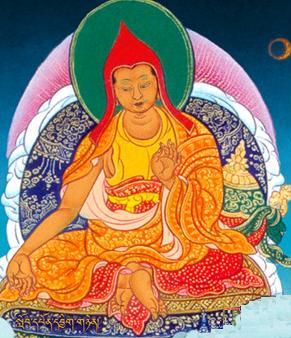Treatise on the Three Natures: Difference between revisions
Jump to navigation
Jump to search
No edit summary |
|||
| Line 9: | Line 9: | ||
==Translations== | ==Translations== | ||
===In English=== | ===In English=== | ||
* | *Stefan Anacker, ''Seven Works of Vasubandhu: The Buddhist Psychological Doctor'' (Motilal Banarsidass, 2nd Edition, 2002), pp. 287-297 | ||
*Karl Brunnhölzl, ''Straight from the Heart: Buddhist Pith Instructions'' | *Karl Brunnhölzl, ''Straight from the Heart: Buddhist Pith Instructions'' (Snow Lion, 2007), pp. 43-53 | ||
* | *Ben Connelly, ''Vasubandhu's “Three Natures”—A Practitioner's Guide for Liberation'' (Wisdom Publications, 2022) | ||
*Jay L. Garfield, 'Vasubandhu's Treatise on the Three Natures' in ''Empty Words: Buddhist Philosophy and Cross-Cultural Interpretation'' (Oxford University Press, 2002) | |||
*Thomas Kochumuttom, ''A Buddhist Doctrine of Experience: A New Translation and Interpretation of the Works of Vasubandhu the Yogācārin'', Motilal Banarsidass (Delhi 1982). | *Thomas Kochumuttom, ''A Buddhist Doctrine of Experience: A New Translation and Interpretation of the Works of Vasubandhu the Yogācārin'', Motilal Banarsidass (Delhi 1982). | ||
===In French=== | ===In French=== | ||
* Louis de la Vallée Poussin, ''Le Petit Traite de Vasubandhu-Nāgārjuna sur les trois natures'' (''Trisvabhāvanirdeśa''). Mélanges Chinoises et Bouddhiques 2 (1933): 147 61. | * Louis de la Vallée Poussin, ''Le Petit Traite de Vasubandhu-Nāgārjuna sur les trois natures'' (''Trisvabhāvanirdeśa''). Mélanges Chinoises et Bouddhiques 2 (1933): 147 61. | ||
Latest revision as of 13:01, 10 November 2022

The Treatise on the Three Natures (Skt. trisvabhāvanirdeśa; Tib. རང་བཞིན་གསུམ་ངེས་པར་བསྟན་པ་, rangshyin sum ngepar tenpa, Wyl. rang bzhin gsum nges par bstan pa) is a short treatise (of 38 stanzas) by Vasubandhu describing the three natures.
Karl Brunnhölzl writes: "Vasubandhu’s Instruction on the Three Natures was probably his last work and there is no written commentary on it. Thus lacking a recognized line of transmission, unfortunately, this beautiful and profound work is almost never studied or taught in contemporary Buddhist centers of learning. It gives a terse, yet very illuminating, presentation of the three natures and their mutual relations, how delusion manifests and how it is dissolved."[1]
References
- ↑ Straight from the Heart: Buddhist Pith Instructions, pages 44-45.
Translations
In English
- Stefan Anacker, Seven Works of Vasubandhu: The Buddhist Psychological Doctor (Motilal Banarsidass, 2nd Edition, 2002), pp. 287-297
- Karl Brunnhölzl, Straight from the Heart: Buddhist Pith Instructions (Snow Lion, 2007), pp. 43-53
- Ben Connelly, Vasubandhu's “Three Natures”—A Practitioner's Guide for Liberation (Wisdom Publications, 2022)
- Jay L. Garfield, 'Vasubandhu's Treatise on the Three Natures' in Empty Words: Buddhist Philosophy and Cross-Cultural Interpretation (Oxford University Press, 2002)
- Thomas Kochumuttom, A Buddhist Doctrine of Experience: A New Translation and Interpretation of the Works of Vasubandhu the Yogācārin, Motilal Banarsidass (Delhi 1982).
In French
- Louis de la Vallée Poussin, Le Petit Traite de Vasubandhu-Nāgārjuna sur les trois natures (Trisvabhāvanirdeśa). Mélanges Chinoises et Bouddhiques 2 (1933): 147 61.
- Philippe Cornu, Vasubandhu, Cinq traités sur l'esprit seulement (Paris: Fayard, 2008).